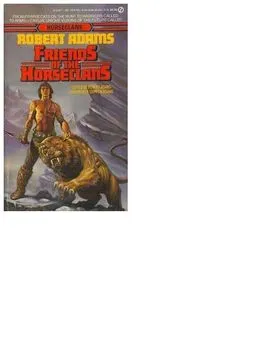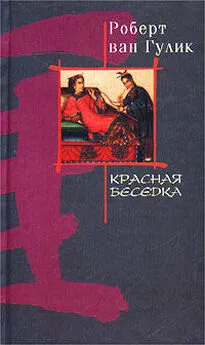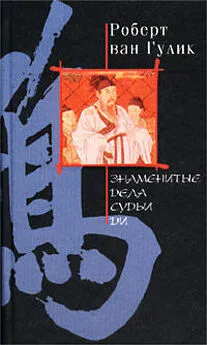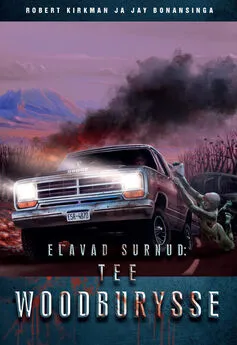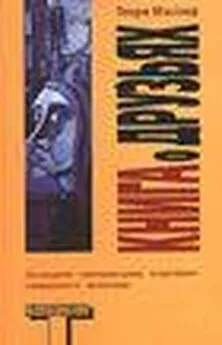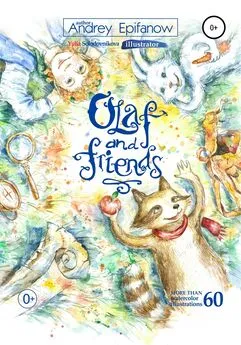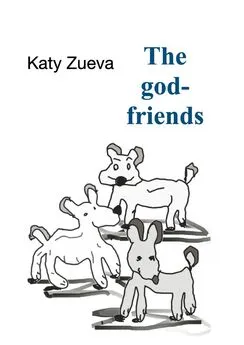Friends (2013) - Adams, Robert
- Название:Adams, Robert
- Автор:
- Жанр:
- Издательство:неизвестно
- Год:2013
- ISBN:нет данных
- Рейтинг:
- Избранное:Добавить в избранное
-
Отзывы:
-
Ваша оценка:
Friends (2013) - Adams, Robert краткое содержание
Adams, Robert - читать онлайн бесплатно полную версию (весь текст целиком)
Интервал:
Закладка:
He butted me with his forehead. It broke my nose and hurt like hell, but something else, too—it so, I dunno, offended me that I started doing it back to him and kept doing it until long after he was still.
“Brad!” Lanny shouted out and woke me up. I lurched up from the still form below me and there was Lanny, blood-soaked and swaying but alive. Smada was there, too, dragging a blade from another guard.
There were bodies everywhere and blood everywhere else and the women and the others were cowering in a comer whimpering and we’d done it! We had by God done it!
I had just noticed that Greydon was nowhere in sight when he burst back through the open front door.
He was leading the other guards. Six more.
We did pretty well, considering.
Smada was nothing short of spectacular. Lord, he was strong! Once, during a pause in my own struggles, 1 saw him backhand his blade at a guard’s throat, miss the man when he ducked, but still manage to literally behead the guard behind the first with his off-balance follow-through. He was fast as hell, too. And he knew how to use all that weight. Even
without all of that wrist speed of his, he could have bludgeoned through almost anything.
My own lot was a blurring mist of terror and rage and exhaustion, of swords sparkling slippery through the air and grunts of pain and many, many wounds from dagger edges and sword edges but never again from points. 1 just hacked and drove ahead and kicked and punched and screamed in pain and fury and fear. I never fought so well. I never did anything so well. I needed to. I had three ribs smashed right through the chain mail when a guard slammed his hilt at my groin and missed. I broke my own left wrist hacking downward with my dagger against the side of a helmet but still managed to punch it in there through the space caused by knocking it askew. Once I plunged my blade in so deep I was too tired to draw it back out until somebody slammed into me and popped it loose.
All was confusion. And horror. And heartsick misery at what just goddam would not ever seem to be finished.
I saw a lot of what Lanny did. He was something to see. He skewered them and stabbed them and carved at them. He threw punches and furniture and karate kicks, of all things. I saw a lot of his fight. It was wonderful. He was wonderful. Once 1 saw him make a move 1 didn’t know the human body could make at all, much less with power. I saw a lot of his ~ fight, like I said. 1 even saw him kill Greydon.
I didn’t know Greydon had already killed him.
Nothing in my life had ever been so horrible. Nothing hurt so badly, it was over, goddammit, and we had wonl But Lanny’s wound wouldn’t stop pulsing. The life just kept throbbing out, and 1 remember thinking that any decent paramedic unit could have saved him. Saved him at the scene and, using the siren, have him at the hospital within seconds.
But there were no hospitals there and Lanny died. He died.
In my arms, his body shivering, his face white and dying, too weak to speak.
I could not stop crying. I could not stop wailing. I couldn’t stop. 1 couldn’t do anything except catch my breath and wail some more. But it did no good. They wouldn’t take me instead. Lanny never moved again.
Smada, tears of pity running pink down his own face, held me in his lap and rocked me and rocked me for what seemed
like days. Then, exhausted from fatigue and loss of blood and heart, I fell asleep in his arms.
And 1 had the most incredible dream. I knew it was a dream. And 1 also knew it was real. It was incredibly fast but also incredibly detailed. It was . . . hell, I don’t know what it was.
Smada and I rode together, in that dream, for twenty years. It was awful. It was also wonderful. I mean, there were some wonderful moments. Some truly amazing parties, for example, with some truly amazing women. Lots of women, Smada being as he was. And lots of friendships and lots of swordly triumphs plus times of great but temporary wealth. But the money got spent and the friends all seemed to die, one after another. Some of them badly and dearly. It was like Lanny all over again with three of them, one of them for Smada.
It was such a grinding tragedy of a life. Flashing glory only meant more aching scars and bloody wounds and long lines of dirt-poor trudging peasants to pass on the roadway. And the whole time the thought of the wondrous age I had left behind.
When I awoke I was still on Smada’s lap and Lanny was still dead in front of me and I began to whimper some more. Smada was infinitely caring. He rocked me until I stopped whining. He spoke to me in a dull but reassuring monotone. He wiped my bloody forehead with his glove and once, tenderly, with his damp soft beard. I just stared, mostly, not thinking of anything for a long, long time.
When I came partly out of it and looked up into his eyes he smiled lovingly at me and said: “Time to go home, son.”
I began to cry. “I don’t know how,” I whispered plaintively. “I don’t know how!”
But he just rocked me and said, “Sure you do.”
And, of course, I did. I looked upon him one last time, teacher, father, brother-in-arms, and then I closed my eyes and slept again.
When I woke up it was night and 1 was back in the forest and the SCA party was still going on by the campfire and the tequila bottle was empty and Lanny was alive beside me.
He looked pale—bet I did too. We stood up and embraced and walked back to the trailer and took off our sword stuff and put on blue jeans and got drunk all over again and slept.
It was a three-day SC A event, but we left bright and early— and hungover—the next morning.
Lanny and I are still best friends, more than ever now. I never told him about my dream and he never told me about being dead, and 1 don’t blame us. We still go to SCA stuff but we never fight. Mostly we just point and laugh.
We still read the Horseclans, too. Now more than ever. Because now we understand just what they were about all along. And the heroes in those stories are no less real to us than before. Hell, just the opposite. Now we understand that for a man or woman to rise to heroism in such a brutal place is what heroism is all about. We had wanted to go there because we thought being great was automatic. Now we know it’s miraculous. It is awe-inspiring.
Read it.
No, I do not wish to go back. I think about it a lot, what happened, but 1 never think I want another crack at it. Not me. Not ever.
But I do miss Smada. Whoever or whatever he was—or is—I miss him. Every day I miss him.
Every single day.
Sister of Midnight
by Shariann Lewitt
Bom in New York City, Shariann Lewitt began writing seriously in her teens. Her first play was produced Off-Broadway when she was nineteen years old. Educated as a playwright, she holds an M.F.A. from the Yale School of Drama, where she was named Lord Memorial Scholar, John Golden Fellow and a Graduate Fellow of Calhoun College. Her undergraduate degree is in anthropology, with a specialization in physical anthropology/ evolutionary biology. In addition, she has done graduate work in Middle Eastern anthropology and studied at the University La Source d’Orleans in France, and she speaks French and Arabic.
In the tradition of writers, she has held numerous jobs, including teaching at Catholic University, directing plays in New York and Connecticut and working as a drama therapist in a rehabilitation program for heroin addicts. She has also worked on archaeological digs and had a short stint as a commercial model.
When not writing, Lewitt sustains an active interest in aviation, ballet and international travel. She makes her home in Washington, D.C., with her husband and three blue hippos.
The men of Harzburk had made short work of the Ehleenee rearguard. Here along the road were scattered the remains of the previous day’s work, and already most was gone. The larger scavengers had come first, and now the crows and worms were feasting on what was left. The feast was a generous one, men and warhorses alike strewn in a mass of tom limbs and innards set in congealed blood. Even from a good distance the carnage rested heavy on the air, the stench overwhelming any other scent.
Emhelee gagged slightly, then took a deep breath and held it as long as she could. A small knife rested in her left hand;
she held her nose with her right. She settled deeper into the brush and listened, her mind alert for any stray thought-sending of any creature in the area. She did not want to be noticed.
Assured that she was alone, she edged closer to the scene of the slaughter, still careful not to draw attention if there were any lurkers beyond. Her knife was ready. If it was small it was also very sharp, and Emhelee knew how to use it. It was not the kind of blade anyone but a noble would carry, made of the finest steel. Not a proper thing for a young girl, her mother had said. What kind of scullery maid could wield a weapon so well?
At eleven, she was no real scullery maid yet, but her mother had hopes. And the girl was unwilling. Which was why she was out on the road at twilight so very far from home. Gingerly she crept forward toward the scene of the fight.
“My father would be proud of me,” she told herself over and again. “He would not let the smell make him sick. He will be pleased to hear how I came, and took what I needed ...”
Emhelee leaned against the bole of a tree and was sick in spite of her good intentions. She heaved, then spat out the bad taste and forced herself on. She could not possibly get sick again. There was nothing else in her, and she had no more food in her bag. The last of it was lying uselessly spit-up on the grass.
“Stupid, stupid,” she berated herself, not permitting herself to cry. She was sure that her father would not approve of girls who cried. When she met him she would present the knife, which he would surely have to recognize, and she dared not cry.
Now for the men. She pulled her courage around her fiercely and forced herself toward the scene of the battle. Little enough there would be, and she could not miss any of it. Not if her plan was to work. Over and over she told herself that this was the most fortunate good luck that could have come her way. There was nothing to fear from the dead, and what goods they had she could surely use. Food would be gone, taken by those who now picked at the remains of men and horses alike, but there should be some money, plate, maybe a fine sword.
Not that she could use a sword, but Emhelee did believe that she could recognize a particularly good one. All she had to do was to match the blade to her knife, to the strange wavy patterns of subtle color that danced down the length of it. Plate could be traded on the road for food. A truly wonderful sword might be the beginning of a dowry when she arrived in Morguhnpolis.
The odor overcame her once again, and she dropped onto the hardpacked road. And began to sob. It was growing late, the shadows long and the light deep yellow. Soon the chill of evening would creep in, and Emhelee had no idea how far she still had to travel. The terror of it spread cold fear through her, and she began to mindcall, without control, for anyone to hear. It was so lonely, lonely, she sent out the message without precise words, and she was frightened.
“Who bespoke me? Who calls on Midnight to kill their enemies?” A mind had touched hers.
Читать дальшеИнтервал:
Закладка:
